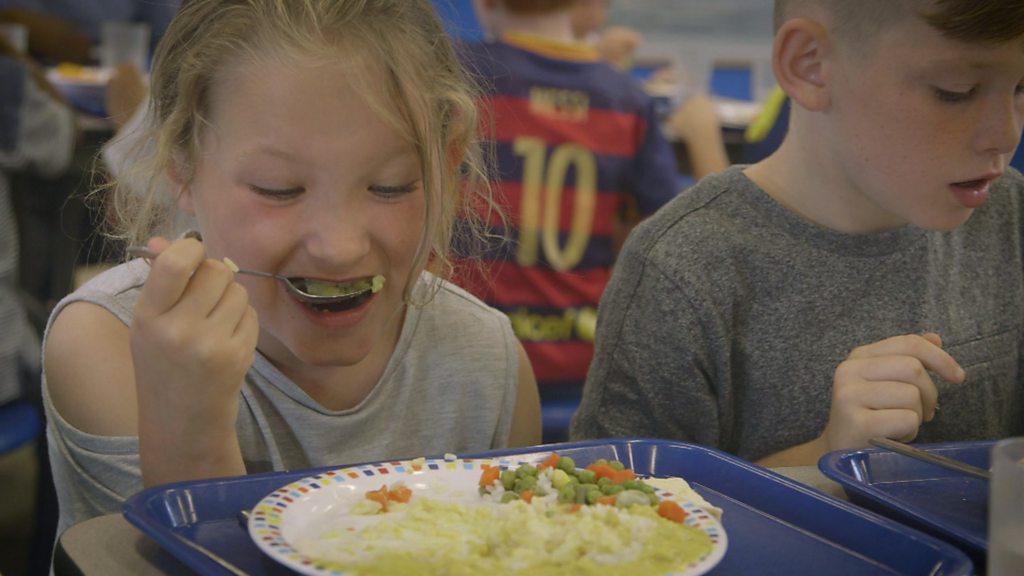Money for poorer pupils 'absorbed into school budgets'
- Published
- comments
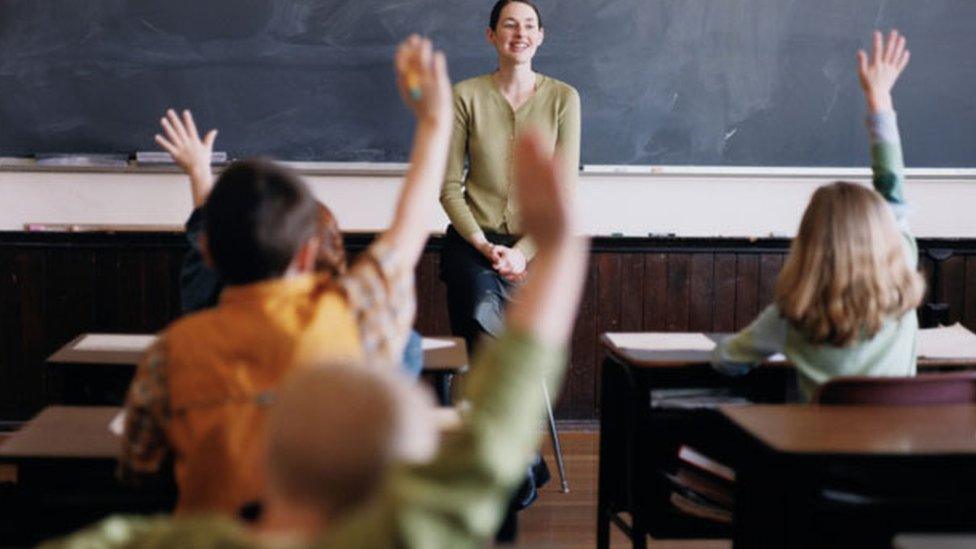
The pupil development grant is viewed as "invaluable" by schools - but is it being effectively targeted?
Money aimed at helping poorer pupils is masking wider school budget pressures, according to a new report.
In Wales, £94m a year is spent on the pupil development grant (PDG) for pupils eligible for free school meals.
But the money is being absorbed into core school budgets, the Assembly's education committee said.
The Welsh Government said reducing the attainment gap between poorer pupils and their peers is at the heart of its national mission to raise standards.
Schools are given £1,150 a year for every pupil eligible for free school meals, with extra funding also available for looked-after and adopted children and for under-fives.
Since the PDG was established in 2012, the Welsh Government has invested £400m in the policy.
While supporting the principle of the grant, an inquiry by the committee of AMs recommended it should be regularly monitored to ensure value for money.
Deprivation
Eastern High in the Rumney area of Cardiff receives the PDG for 45% of its pupils.
Deputy headteacher Susan Cowan said a lot of their young people need additional support around emotional well-being.
She argued that while they had many supportive parents, some of their pupils were growing up with the knock-on effects of deprivation.
"Sometimes it can be, for example, anti-social behaviour in their communities that affects young people," she said.
"Sometimes it can be housing concerns. Sometimes it can be unemployment and so on that affects the amount of disposable income those families have [which] affects the opportunities they can offer their children to enhance their learning... which indirectly does affect their learning and their levels of achievement in school."
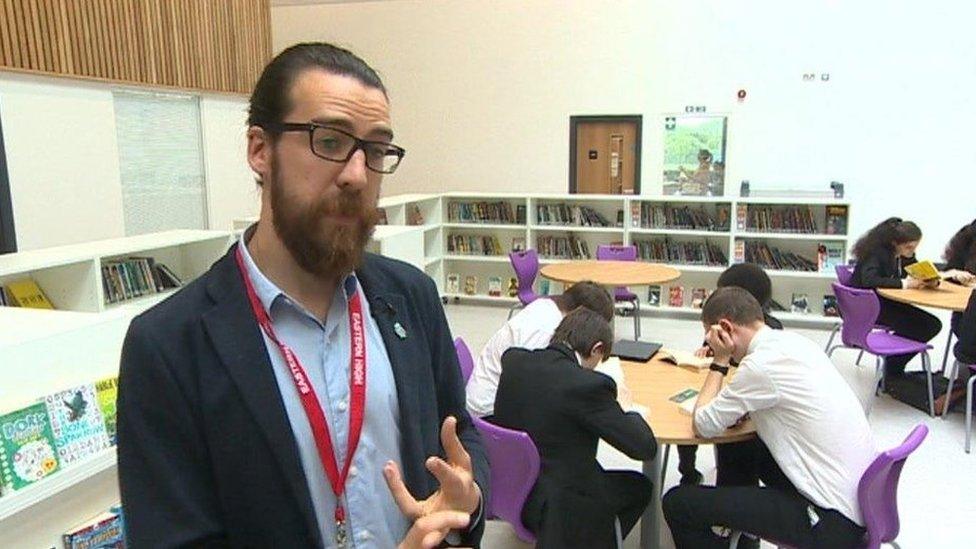
Librarian James Emery says the increase in the school's book collection has boosted access to literature for poorer pupils
One of the schemes funded by the grant at Eastern High helps develop pupils' literacy by assessing their reading ability and directing them towards suitable books.
By having regular reading sessions at school, pupils from poorer backgrounds who may not have access to a wide range of books outside school make significant progress, according to the staff.
When current Year Seven pupils started at the school in September 2018, 48% were reading with "functional literacy" which is equivalent to a reading age of nine-and-a-half years.
But 70% had reached that point two-thirds of the way into the school year.
James Emery, the school librarian, said the PDG helped vastly expand the number of books in the school to around 9,000.
"I think the volume of books that are read by pupils from poorer backgrounds - it's magnificent - they read 30, 40, 50 books a year now, which is something they definitely would not have done had the school library not existed."
The education committee said there were examples of good practice, but it was concerned that, according to the school inspectorate Estyn, only two-thirds of Welsh schools are using the money effectively.
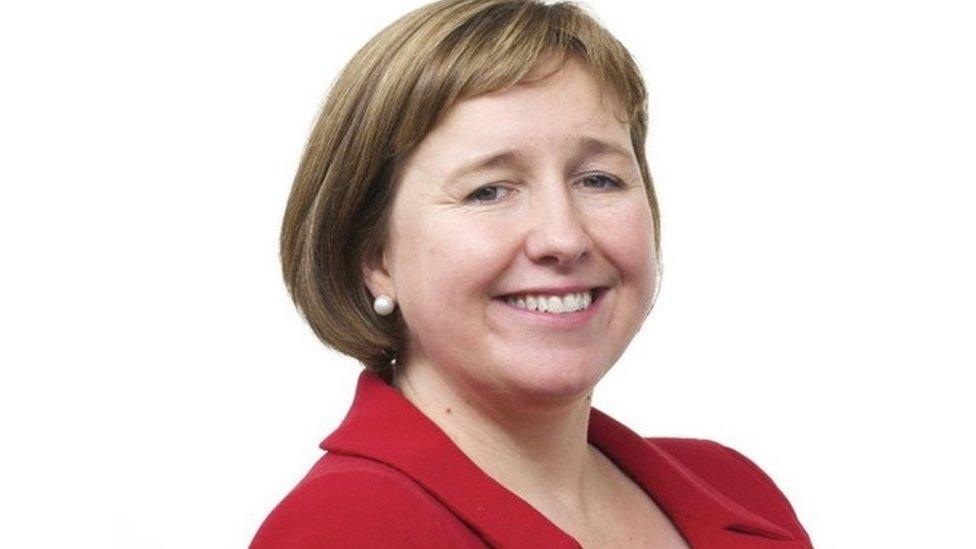
Lynne Neagle AM thinks more-able pupils from deprived backgrounds need additional support
Committee chair Lynne Neagle AM said many pupils from deprived background who flourish academically do so "against the odds" and there should be more emphasis on pushing those who do well along with helping pupils who struggle.
She said: "The committee supports the use of the PDG to help narrow the gap between disadvantaged and deprived pupils and their peers but we believe much more needs to done to ensure this funding helps more able pupils from deprived backgrounds get the highest grades."
After narrowing over the previous year, the gap in GCSE performance between pupils eligible for free school meals and their peers widened slightly, according to the most recent figures.
In 2017, 32.4% fewer pupils eligible for free school meals got 5 A* to C grades at GCSE including Maths and English or Welsh, compared with their classmates.
Changes to qualifications and to school performance data were largely responsible according to the Welsh Government, but the committee said it should "urgently" consider why the gap had widened.
The Welsh Government said a recent report found schools viewed the PDG as "invaluable".
A spokesman said: "That's why we've focused our efforts on maximising the impact of the grant - whether that's by doubling the financial support to early years learners in the foundation phase or, as we recently announced, extending the PDG to include financial support for school uniforms, school sports kit and for equipment for wider activities such as scouts and guides and sports outside of school."
- Published6 June 2018
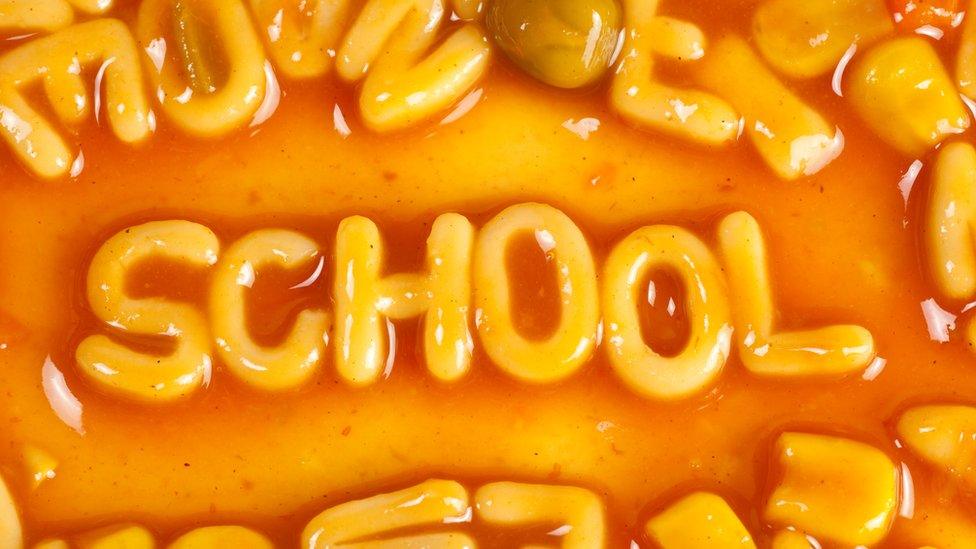
- Published8 December 2017
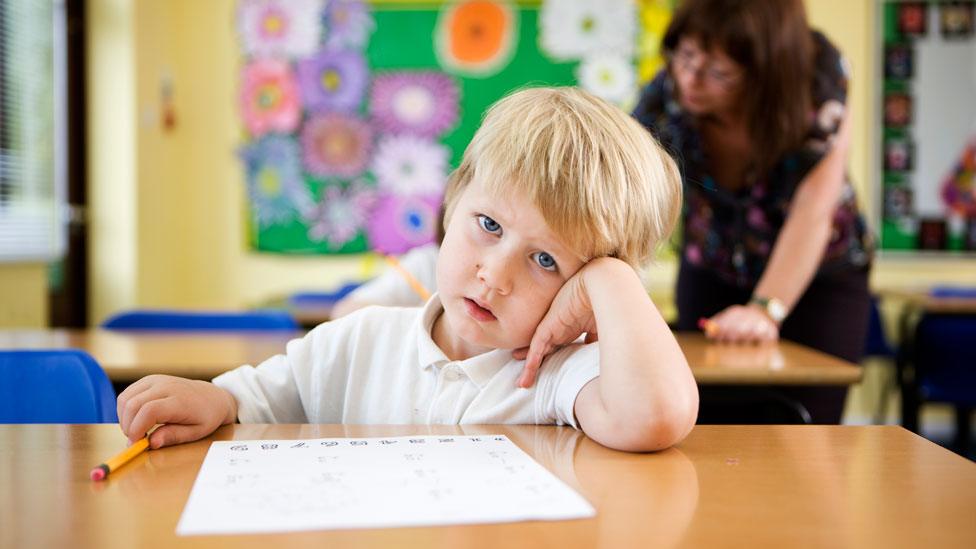
- Published10 August 2017
